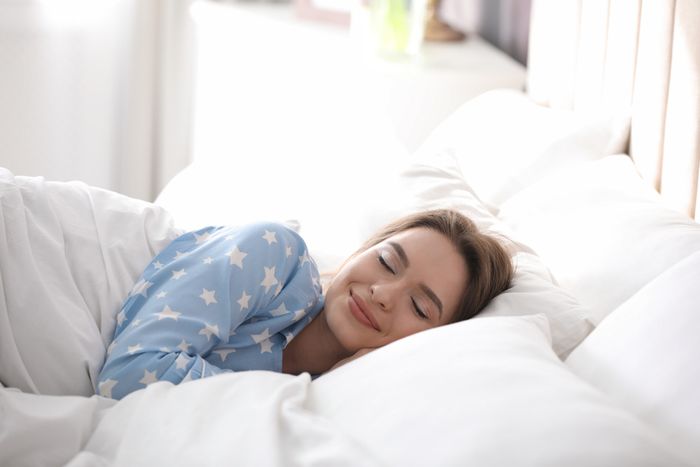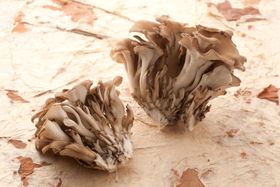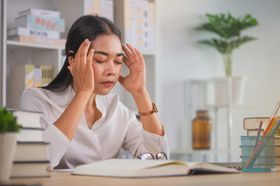5 Ways to Improve Your Sleep Quality
Updated April 14, 2023.

Sleep is the time that our bodies perform the necessary rest-and-repair functions called cell rejuvenation. Getting enough sleep is paramount to healthy living, so much so that forgoing adequate amounts of quality sleep can cause the following complications in otherwise healthy individuals:
- Increased risk of chronic conditions like obesity, heart disease, and diabetes.
- Compromised immune system.
- Decreased response capabilities to sensory inputs.
This article will look at the causes of sleep issues like insomnia and some natural ways to sleep better at night.
How to Tell if You Have Insomnia
The term "insomnia" is often thrown around without individuals understanding the difference between insomnia and sleep deprivation. Being temporarily sleep deprived for a few days due to poor lifestyle choices is not the same as suffering from chronic insomnia.
The most common type of insomnia is called acute insomnia and can be brought on suddenly, usually after experiencing a highly stressful event. However, acute insomnia can also be caused by disruptions to your normal sleeping routine, physical discomfort, and illness. Acute insomnia typically goes away on its own after a few days to a few weeks.
Chronic insomnia often occurs for long periods and can manifest as a secondary symptom of other conditions or have no underlying causes. It is this factor that makes it difficult to diagnose.
Symptoms of insomnia include:
- Difficulty falling asleep.
- Waking up throughout the night.
- Fatigue and tiredness, even after enough sleep.
- Lack of concentration.
5 Natural Techniques for Better Sleep
Whatever the reason for your lack of deep sleep, these natural and cost-free techniques may help you sleep better, even with symptoms of anxiety, depression, and stress.
1. Exercise more frequently
The benefits of exercise for physical and mental health are extensive. Regular exercise can improve sleep in two ways:
- Expending excess energy during the day can make it easier to fall asleep at night.
- Exercise can promote weight loss, thus improving or preventing sleep issues that manifest from being overweight, such as sleep apnea (irregular breathing throughout the night).
2. Develop a sleep routine a stick to it
This point cannot be stressed enough. The sleep-wake cycle is managed by something called the circadian rhythm, which typically follows the same 24-hour repeating cycle.
When you awake, your body releases a stress hormone called cortisol that wakes your brain and body up, essentially simulating a mild adrenalin response. Throughout the day, your brain secretes a hormone called adenosine, which slows down the activity of neurons and gradually makes you feel more tired. And finally, typically about 2 hours before you go to bed, your brain secretes melatonin, a hormone that tells your body and brain it's time for bed.
Having an irregular sleep cycle results in your brain not knowing when to secrete proper doses of each hormone. Whereas waking up and going to bed at the same time every day can teach your brain the exact times it should be releasing each hormone, making it far easier to stick to the routine in the future.
3. Manage bright light exposure
The environmental factor that triggers the release of cortisol is the presence of blue light. Until recently in human history, the only source of blue light we had came from the sun, which made it easy to regulate our circadian rhythms. Now, however, we can get blue light from the screens of technological devices, promoting the same cortisol release as the sun.
This means that you should limit your screen usage a few hours before bed and make sure that you get enough natural sunlight throughout the day.
4. Manage what goes into your body
Aside from eating less junk food (inflammation and oxidative stress exacerbate sleep problems), this means consuming less alcohol, nicotine, and caffeine. Alcohol and nicotine may make you fall asleep quicker, but they significantly affect the quality of your sleep. Additionally, caffeine doesn't actually give you energy. Instead, it tricks your brain into thinking you are alert by blocking adenosine receptors. This results in difficulty falling asleep and compromised sleep quality if caffeine is consumed less than 10 hours before bed, gradual adenosine build up and sensitivity increase, and caffeine dependency.
5. Take short naps sparingly
Naps can be an effective way of reducing sleep debt, but they must be used sparingly. Power naps are fine so long as they don't allow your body to fall into the deeper stages of sleep. As such, you should limit the length of your afternoon nap to below 20 minutes, or else you risk interrupting a sleep cycle, leading to more fatigue, or disrupting your circadian rhythm and making it more difficult to fall asleep in the evening.
Other Ways to Get Better Sleep
If trying the above techniques hasn't helped you sleep through the night without waking up, then you might want to try some of the following sleep products.
- Melatonin supplements Melatonin is the hormone released at night that tells your brain it is time to fall asleep. If you are unable to sleep properly, taking artificial melatonin supplements may help you do so.
Are Sleeping Pills Worth It?
Unlike melatonin supplements, most sleeping pills work by artificially slowing down your nervous system to forcefully induce sleep. While they can be beneficial in the short term to combat symptoms of acute insomnia or to assist with forming good sleep habits and lifestyle changes, taking sleeping pills for an extended period can lead to chemical dependency and even more sleep complications in the future.
When Should You See a Doctor for Sleep Issues?
Sleep issues are some of the conditions that people tend not to seek professional treatment for. While symptoms may very well go away on their own with adequate lifestyle changes, sometimes it is best to get professional help. You should consult a doctor if your sleep problems cause you to not function normally during the day or require excessive amounts of stimulants (like caffeine).








